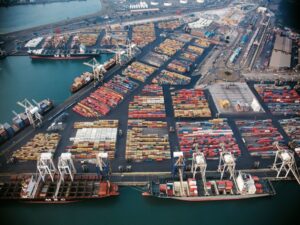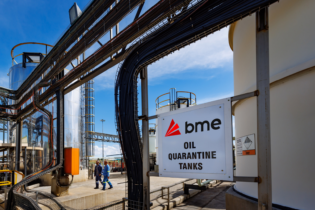The latest World Bank Container Port Performance Index (CPPI) report, which ranks several South African ports poorly, covers the crisis-ridden period of 2023 and does not account for the corrective actions implemented since Transnet came under new management as part of a recovery and transformation strategy, according to Dr. Juanita Maree, CEO of the Southern African Association of Freight Forwarders (SAAFF).
“To contextualize, this was a period at the height of the crisis,” Maree explains. “The timing of its release unjustifiably tarnishes today’s developments, casting doubt on the efficacy of robust corrective action underway and the hard work of the recovery teams and the leadership of the National Logistics Crisis Committee – a strong strategic public-private consultative initiative by government that serves as the anchor.” Maree acknowledges that the report does raise valid points and should not be dismissed outright. Instead, it should be used constructively to enhance container port performance. She emphasizes that the CPPI ranks ports rather than diagnosing specific areas for improvement, and its rank aggregation methodology is an overly simplified approach to assessing a complex system. “Moreover, the report uses rank aggregation, combining multiple rankings into a single ranking,” Maree notes. “This is a significant problem arising in many areas, and it is an overly simplified approach to providing a single ranking of a complex system that is a port call.” The World Bank admits that imputed values are used when data on port calls and vessel call sizes are missing, which can distort the performance assessment across different call-size groups. This unidimensional view of port performance attempts to evaluate the system and provide a single index to indicate overall performance, but it falls short of capturing the full picture. Despite these methodological critiques, SAAFF acknowledges that the report highlights South Africa’s loss of time at outer anchorages, a point accepted by both the association and Transnet. However, using a vessel’s stay duration as the sole measure of port performance without considering factors like throughput and handling rates limits the accuracy of these comparisons. “The World Bank concedes that it is impossible to see from the data whether waiting time is voluntary or forced, and that it is difficult to find a suitable level at which to discount waiting time in this scenario,” Maree adds. “We must, therefore, conclude that South African ports were excessively penalized for time lost at anchorage.”







